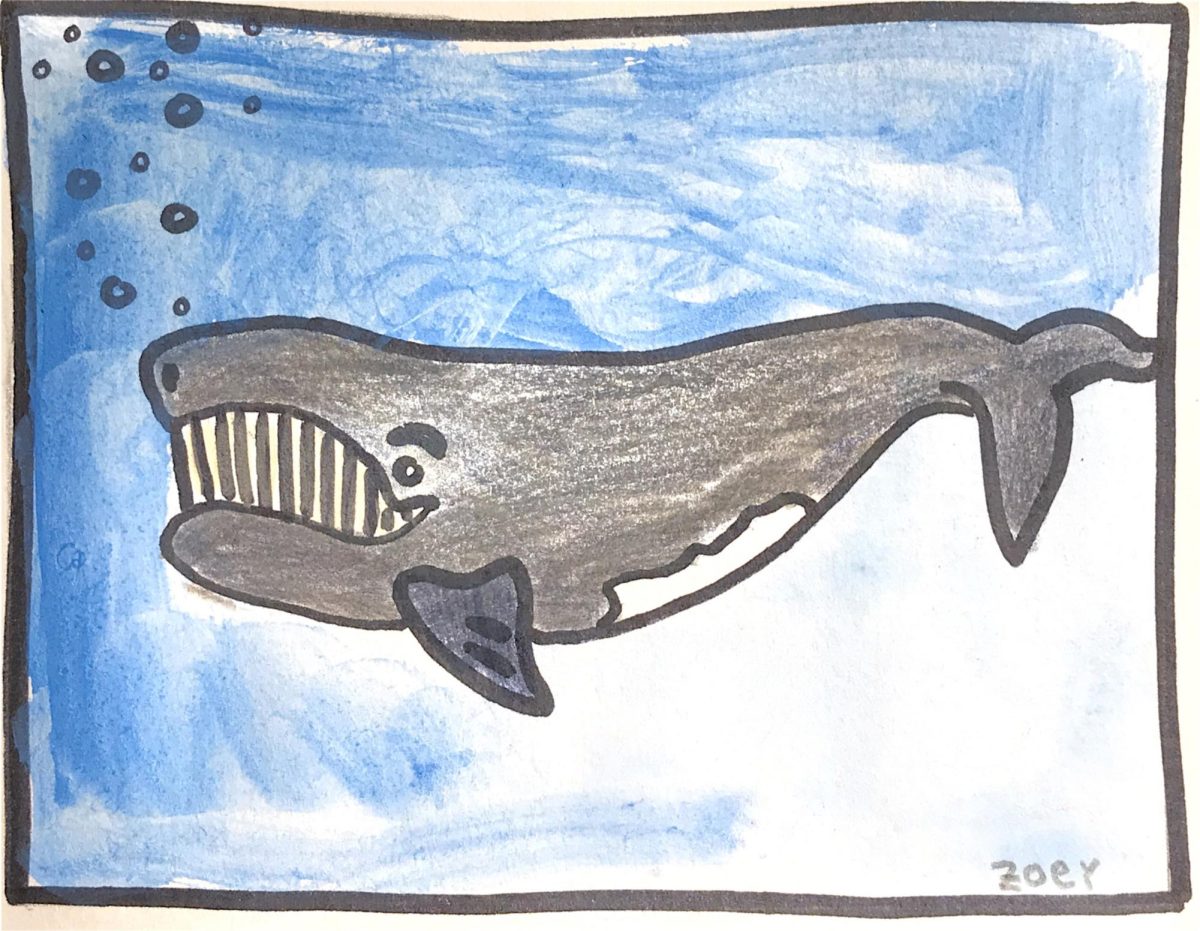On April 24th, Massachusetts celebrated its second annual Right Whale Day. The bill that created the state holiday declares a purpose of “promot[ing] the preservation of the critically endangered North Atlantic right whale.” This species only has 360 individuals left, and for much of the year, they feed off the coast of New England. While there was no formal acknowledgment from state officials this year, the New England Aquarium celebrated the day with a life-sized inflatable right whale and educational opportunities.
Advocates for the species say that this holiday is extremely important. Regina Asmutis-Silvia, executive director, senior biologist, and lead of North Atlantic right whale protection at Whale and Dolphin Conservation North America (WDC), told the Register Forum that she hopes the day “serves as an important reminder that the fate of this species is in our hands and we have both an obligation and an opportunity to ensure their future.”
Mr. McGuiness, a marine biology teacher at CRLS, explained that the holiday is relevant to CRLS students, saying that right whales are an “important part of New England marine ecosystems, but they’re also a huge, huge part of New England’s historical and cultural economics,” referring to New England’s long history of whaling.
This whaling, along with vessel strikes and entanglements in fishing gear, led the North Atlantic right whale to become the most critically endangered large whale species in the world. In 2019, the National Oceanic and Atmospheric Administration (NOAA) declared that the species couldn’t survive with more than one death per year; however, this year, at least five North Atlantic right whales have been found dead, almost all from preventable accidents, a loss that Asmutis-Silvia described as “heartbreaking.” Two were reproductive age females, a major loss for the species. Mr. McGuiness explained, “When you lose one reproductive female, you don’t just lose that individual, you lose all of her subsequent generations of calves.” Among the dead were also two young calves, as well as at least two others who were missing and presumed dead.
There has been good news for the species recently, however. In September 2023, the Biden Administration invested $82 million to help NOAA with “the application of existing technologies …and the development and implementation of [new] technologies to enable vessels to detect and avoid North Atlantic right whales.” More good news came at the end of 2023 when the species’ numbers stabilized: the number of calves born and the number killed were equal.
Despite this, advocates say that New England legislators haven’t done enough to prevent these unnecessary deaths. Asmutis-Silvia explained that she hopes lawmakers expand and enforce speed regulations for boats in areas with a high number of whales, make ropeless fishing gear more accessible, and fund research on North Atlantic right whales.
When asked how CRLS students can help the species, Mr. McGuiness told students “get involved, get educated, and volunteer.” Asmutis-Silvia gave students three action items: call your elected officials to be a voice for right whales, share reliable information, and donate your time and money. While one day a year is a start, the WDC says that “everyday is right whale day.”








